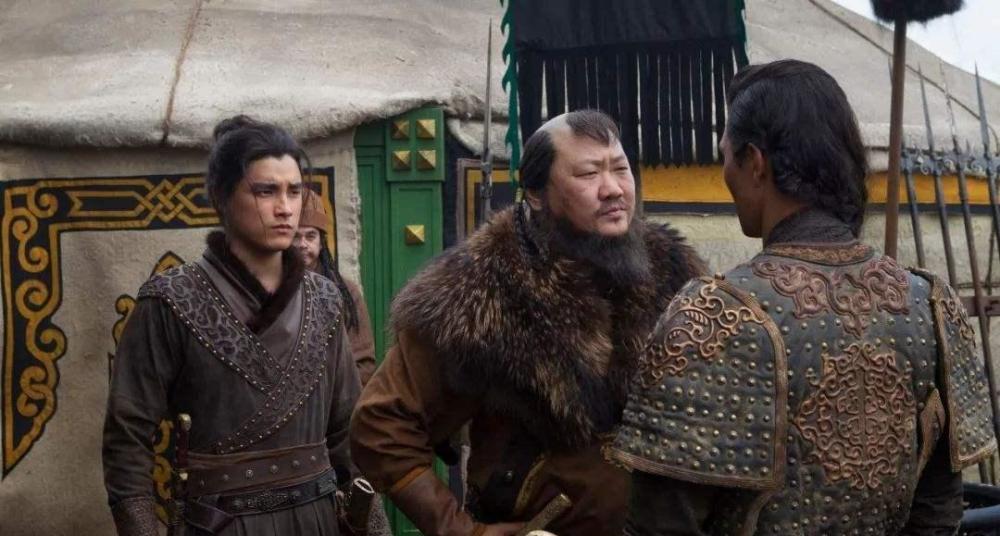In the history of the rise and expansion of Tsarist Russia, the Cossack cavalry contributed indispensably. The source of Cossacks and Cossack cavalry also begins with the Mongol Khanate of Chincha.

The Chincha Khanate, also known as the Golden Horde, was one of the four great khanates of the Mongol Empire and was founded in 1243 by Batu, the second son of Genghis Khan's eldest son, Shuchi. At its peak, the Khanate of Chincha extended its jurisdiction from Lake Balkhash, the Caspian Sea, and the Black Sea in the south to the vicinity of the Arctic Circle in the north. At that time, Tsarist Russia, which had not yet risen, was once under the control of the Chincha Khanate.
With the establishment of the Chincha Khanate, some Slavs, in order to escape the rule of the Chincha Khanate, moved to the don river valley, the lower Dnieper River, the Volga river valley and other southern Regions of Russia, and they were called "Cossacks" who lived in the vast steppes of Eastern Europe.
Like all peoples living on horseback, the Cossack cavalry composed of Cossacks, known for their bravery and good war, they used spears and sabers as weapons, across Eurasia, when the rise of Tsarist Russia, the Cossack cavalry also became the most dependent light cavalry for the expansion of Tsarist force, they participated in all the large battles from the eighteenth century to the Soviet Union during World War II, the enemy attacked quickly when weak, and the enemy retreated decisively when it was strong to reduce casualties, so Napoleon once commented on them: " If I had Cossack cavalry in my army, I would use them to sweep the whole world. ”
Therefore, the Cossack cavalry in front of the opponent, the military appearance is neat, there is a "world invincible" incomparable: "The cavalry is eight people and eight horses per line, some wear cylindrical curly top hats, some are wearing black large trunks, they carry cross-body rifles on their backs, sabers are hung from their waists, and they march in a mighty way in the dust, tens of thousands of horses gallop across the road, tens of thousands of knives are intertwined, this scene is extremely shocking, and it has become the most magnificent scene in the history of cavalry warfare." Such a description reflects the horror of the Cossack cavalry from the side.
However, when Tsarist Russia tried to invade northeast China in the seventeenth century, the Cossack cavalry across Europe and Asia encountered a headache for them here. For example, in the Battle of Yaksa in 1685-1688, the Cossack cavalry was beaten by a minority of our country, and they had to sigh: Ganbai is downwind. The minority that could frighten the Cossack cavalry was the Saurons who guarded our borders for hundreds of years during the Qing Dynasty.
The name of the Solun people began in the Ming and Qing dynasties, and the meaning of the word Solun refers to the meaning of "shooter". During the Qing Dynasty, the Evenk, Dahuoer, Orunchun and other ethnic groups were called the Solun Tribe, which was subordinate to the Eight Banners. They mostly live by hunting and nomadic herders, and the tempering of survival has made Sauron young and mature all proficient in riding and shooting, not afraid of death, and has trained a good skill.
The strong fighting power of the Solun people was also relied on by the Qing court. Especially in the middle and late Qing court, the combat effectiveness of the Manchu Eight Banners plummeted, becoming a "idle" existence, while the Sauron people still maintained a fierce combat effectiveness, so in the Battle of Yaksa, in order to deal with the Cossack cavalry, the Solon cavalry played its due role, defeating the enemy.
In addition, during the Qianlong period, the battles of pacifying the great and small Jinchuan and conquering Nepal were indispensable to the figure of the Solon people, who made certain contributions to maintaining the unity of the country.